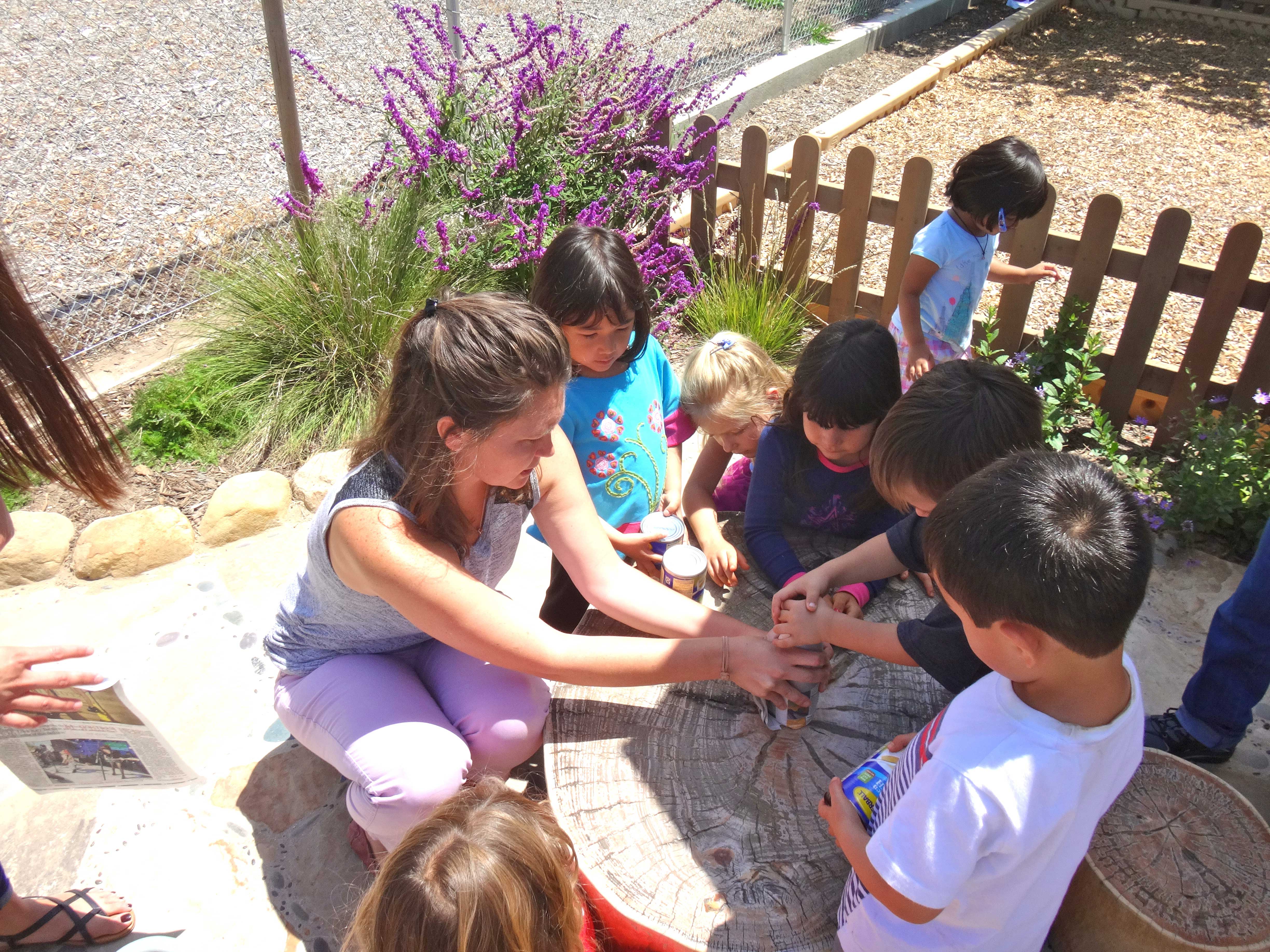Foundations of Environmental Education Instruction Series
During Winter 2020, we partnered with Professor Bridget Lewin to bring her Foundations of Environmental Education class to show students the many variations of farms and gardens that exist and the role these productive spaces play in environmental education. We did tours of the other gardens and farms, including the ECP Student Farm and Methodist Church Garden where students learned the ins and outs of a productive growing farm and the beauty of having a community garden and the role it plays in fostering community relationships. The time in the GHGP gardens taught students that trials and errors that go into successful gardening, including trouble with pests and disease, so that they could better understand gardening education practices to teach future generations of environmentalists.
Urban Agriculture Lecture Series
In 2017-2018, we launched an Urban Agriculture lecture, field trip, and workshop series with the support of The Green Initiative Fund (TGIF). Through this series, we have been able to highlight innovative ways to bring healthy and sustainable produce to suburban and urban areas. Our first speaker was D’Artagnon Scorza, Founder and Executive Director of the Social Justice Learning Institute (SJLI). His organization launched the 100 Seeds of Change Program, which transforms underutilized plots in low-income communities into gardens, empowering community members to eat healthy and lower their risk of diet-related diseases. The produce grown on these mini-organic-farms is managed by a local community network and is distributed at affordable rates. In Winter 2018, we brought in Lee Perry, Director of Fleet Farming, who utilizes “swarms” of interns and volunteers to visit home gardens throughout her neighborhood. The homeowners keep a portion of the food, and the rest of the produce is harvested to be either donated or sold to raise funds to pay for their employees. This is an interesting decentralized farming idea tying multiple small scale home gardens into one collective growing effort. In Spring 2018, we will be hosting Fortino Morales, of R’Garden at UC Riverside.
Inside, Outside and Beyond
The Edible Campus Program partnered with the Orfalea Family Children’s Center (OFCC) and the Gevirtz Graduate School of Education (GGSE) to develop curriculum for pre-kindergarten students and some curriculum for toddlers in the 2016-2017 academic year.
The garden curriculum implemented at the Orfalea Family Children’s Center is based on child-driven and play-based theories. Play-based learning allows the student to learn by interacting with the physical world around them. In order to assimilate new concepts, children must understand how the environment plays a role in this new knowledge. Play-based learning allows children to manipulate their surroundings, by which they can interact and form their own knowledge (Piaget 1952, Dewey 1990, Vygotsky 1967).
Child-driven learning allows the student to take charge of the direction of the content, with which they are interacting. This is typically self-motivated and enjoyable and relies on adapting to the changing needs of the child (Playwork Principles Scrutiny Group, 2005). The theory of nature placed-based learning, allows the student child to move from inside, outside, and beyond; learning about, in, and with nature (Warden, 2015). This collaboration has been highlighted in several media outlets:
- The UCSB Current: Inside, Outside, and Beyond
- KCLU, They May Be Preschoolers, But They’re Learning Science Through Unique Gardening Class On South Coast
In Fall, we introduced the concept of closed-loop ecosystems and the connection between the soil and our food. A closed-loop ecosystem is an ecological system in which matter within is maintained with little loss, as in the case of recycling or composting. Closed-loop ecosystems are self-sustainable, although energy from external sources may flow through (Taub 1974; BBC GCSE Bitesize Science: Ecosystems). Learning about this concept eases students’ understanding of any similar processes in the future.
In Fall 2017, one of our students, Tiffany Kim, wrote the following song
“My Compost Pile”
(to the tune of “The Muffin Man”)
Oh, what’s inside my compost pile
my compost pile
my compost pile
What’s inside my compost pile
I’ll tell you, have a look!
Here’s some browns, and then some greens
and then some browns, and then some greens
Here’s some browns, and then some greens
and a bunch of worms on top!
Yum yum yum, the worms, they eat
the worms, they eat
the worms, they eat
Yum yum yum, the worms, they eat
and give us healthy soil!

In Winter 2017, the students learned about how plants grow from seed to harvest. In the first lesson, they learned how seeds travel through air, in water, and on animals and birds. In a second lesson, students learn about sprouting seeds. In the final lesson plan, students learn about harvesting, exploring the garden, and tasty recipes they can make from broccoli!
We are currently in the process of editing and solidifying the spring 2017 curriculum. This season we will be talking about herbs, food, and the way the process of food brings community together. In the first lesson students will not be introduced to a new closed loop cycle, rather will have the chance to review all the complex ideas we learned in the first two lessons. We will then learn about herbs and spices and be planting a different herb in each classroom’s garden bed. For the field trip students will make a dish from their classroom herb after harvesting it in the morning. Then we will meet parents, grandparents, or guardians across the street at the community garden to have a potluck picnic. The class will bring their dish that features their classroom herb, while parents will also bring a dish that includes the same herb. There is literacy, science and math included in these lessons. Children will also learn the cultural, historical and medicinal values of certain herbs.